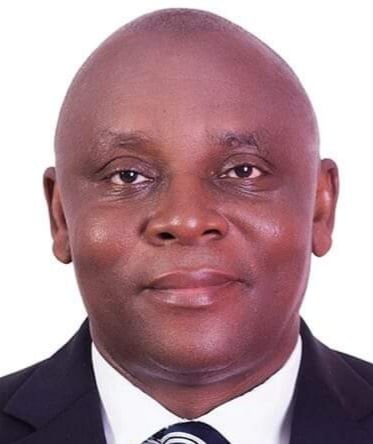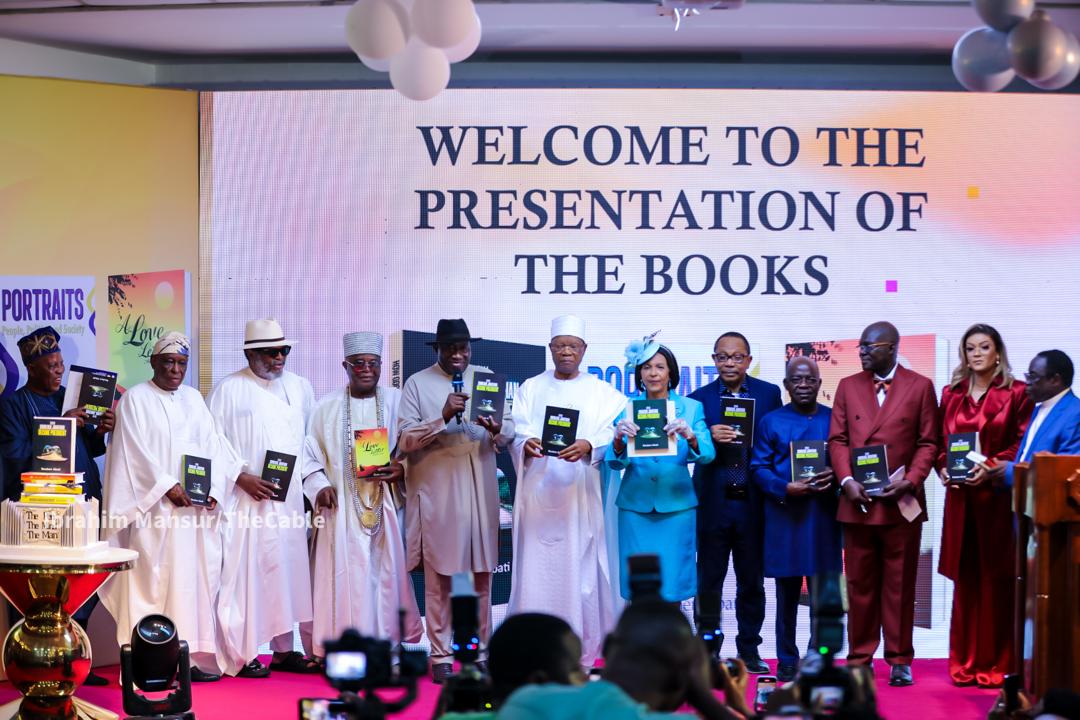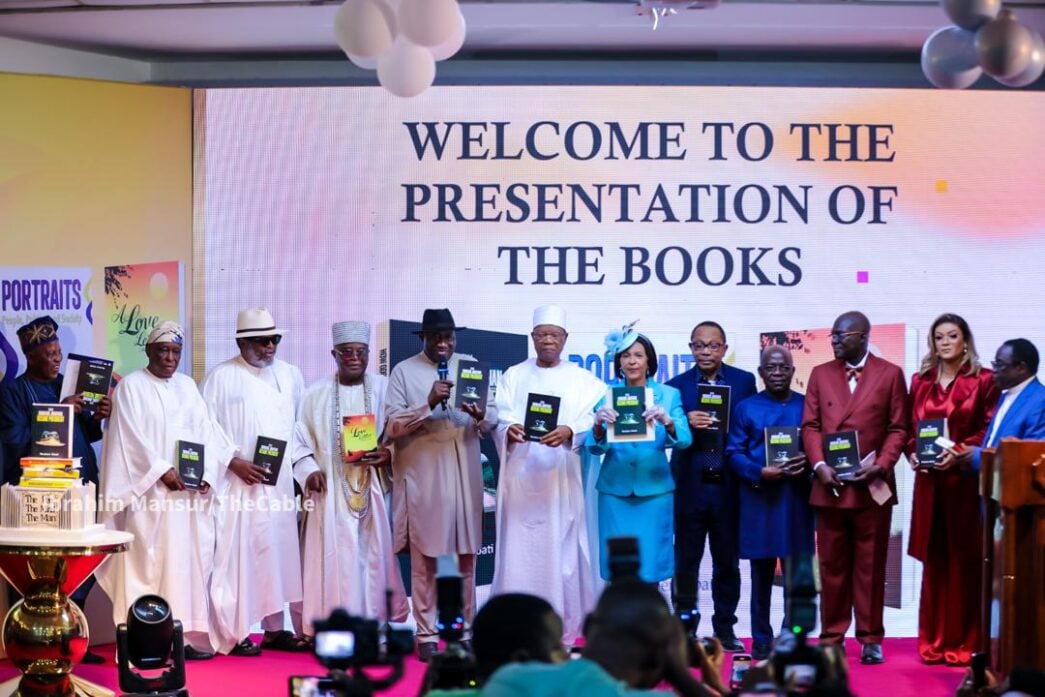Very few Nigerian journalists would be able to attract such an eminent crowd for their event like the one that assembled at the Nigerian Institute of International Affairs (NIIA) for the launch of Reuben Abati’s books on Friday, November 7, his 60th birthday. The author is one of our most celebrated columnists and commentators in recent history, coming a generation after Ray Ekpu, Dele Giwa, Gbolahon Ogunsanwo and many others who had come before. I met Reuben for the first time sometime in late 1998 when I joined the editorial board of The Guardian, and he was already its vice-chairman. We soon struck a friendship that has endured till today. It was therefore difficult to miss the landmark occasion.
Expectedly, it turned out to be a major media and social event, laced with a high dose of politics and humour. There were many important persons, including two former presidents (Olusegun Obasanjo and Goodluck Jonathan), two governors (Alex Otti of Abia and Abba Kabir Yusuf of Kano), journalists, traditional rulers, many politicians and business chiefs.
Bishop Mathew Hassan Kukah’s riveting keynote speech was the high moment of the day. He doesn’t disappoint. The last event I attended at NIIA was a colloquium held to mark the 75th birthday of Chief Don Etiebet in 2019 by Prof. Pat Utomi’s organisation, Leaders and Vision. The facilities have been renovated and upgraded, but on Friday, the air conditioning system malfunctioned. However, the distinguished personalities in the audience, including Prof. Bolaji Akinyemi, NIIA’s former DG and now council chairman, didn’t seem to worry so much about the inconvenience.
Bishop Kukah spoke on the need to reset (or reload, as he called it) Nigeria, and in the context of the recent threats from President Trump, Kukah’s speech was as riveting as it was pungent. He questioned and explained some of the difficult moments in our recent political experiences and concluded that Nigeria requires a total reloading. The country, he stressed, does not need good people to run it, but requires good laws because good leaders could change any time, but good laws provide enduring guardrails that protect the country from bad leaders.
Advertisement
As an illustration, he explained that the reason Ghanaian politicians don’t defect from one party to another after being elected, as we have here in Nigeria, is because there is a law that disallows that. If you must defect, a new election would be held in which the defector would not participate. Kukah did not openly canvass for that type of legislation in Nigeria, but from the reaction of the audience, it was clear that such legislation would be highly welcome here.
Both Obasanjo and Jonathan gave brief goodwill speeches while Louis Odion, journalist, former Edo State Commissioner for Information and now Presidential adviser, reviewed the three books. Obasanjo traced his relationship with Abati to over 30 years ago and said that he was proud to call him ‘’my son’’. But many in the audience did not understand the former president’s admonition that since Abati had now achieved success, he should begin to pursue progress.
Jonathan thanked Abati for the work he did with him as his media advisor when he was President between 2011 and 2015. The Alake of Egbaland, a first-class Yoruba monarch, Oba (Dr) Adedotun Aremu Gbadebo III also gave a resounding goodwill message. The Alake arrived before the 10am official time when there were few people in the hall and stayed till the end. He explained that he had vowed, on his coronation in 2015, that he would attend any event held by any Egba son or daughter to which he was invited.
Advertisement
Akwa Ibom state governor, Pastor Umo Eno, was represented by his commissioner for information, Aniekan Umanah, and chief press secretary, Ekerete Udoh. It turned out to be another reunion for Udoh and Abati. The two had worked at a romance magazine known as ‘’Hints’’, in the early days of their career long ago. The publication was owned by former petroleum minister Ibe Kachikwu. Before ‘’Hints’’, Abati had worked briefly at a local newspaper known as ‘’The Hammer’’. Its founder, Najim Jimoh, who later became the editor of The Punch in the 1980s, was at the book launch.
Governor Eno celebrated Abati for a life of purposeful impact across academia, law, journalism, and public service, noting that his contributions have significantly shaped Nigeria’s democratic experience and intellectual landscape. “At 60, you have lived a purpose-driven life — first as an academic exuding deep intellectual flourishes, a policy wonk simplifying complex policies for effective governance, and as a lawyer guarding the gates of justice,” Eno said, noting that Abati’s distinguished career in journalism and public communication, particularly his tenure as Presidential Spokesman, which placed him “at the centre of discourse and consequential moments in our nation’s growth and development” was an important phase of his career.
The book event was chaired by former President Obasanjo. Among those in the audience were diplomats, politicians, as well as business, finance and media chiefs.
They included former Governor of Ogun State, Olusegun Osoba; Chairman of Access Holdings and Coronation Group, Aigboje Aig-Imoukhuede; Senator Adams Oshiomhole; Publisher of ThisDay Newspapers & Chairman of ARISE News, Prince Nduka Obaigbena; former editor-in-chiefs of The Guardian, Eluem Emeka Izeze and Martin Oloja; Lagos State Commissioner for Information Gbenga Omotosho (who was also in The Guardian); CEO of The Cable, Simon Kolawole; former Minister of Health, Prince Julius Adelusi-Adeluyi (who was introduced as Abati’s godfather and was asked to give the opening benediction); Publisher of The Guardian, Lady Maiden Alex-Ibru; Abia State Governor, Dr. Alex Otti; and the Group Chief Branding and Communications Officer of Dangote Industries Limited, Anthony Chiejina, who represented the President of the Dangote Group, Alhaji Aliko Dangote.
Advertisement
The event ended with a long speech from the author in which he told the story of his life and thanked the guests. His children, wife Kikelomo and relatives were all present.
Views expressed by contributors are strictly personal and not of TheCable.



